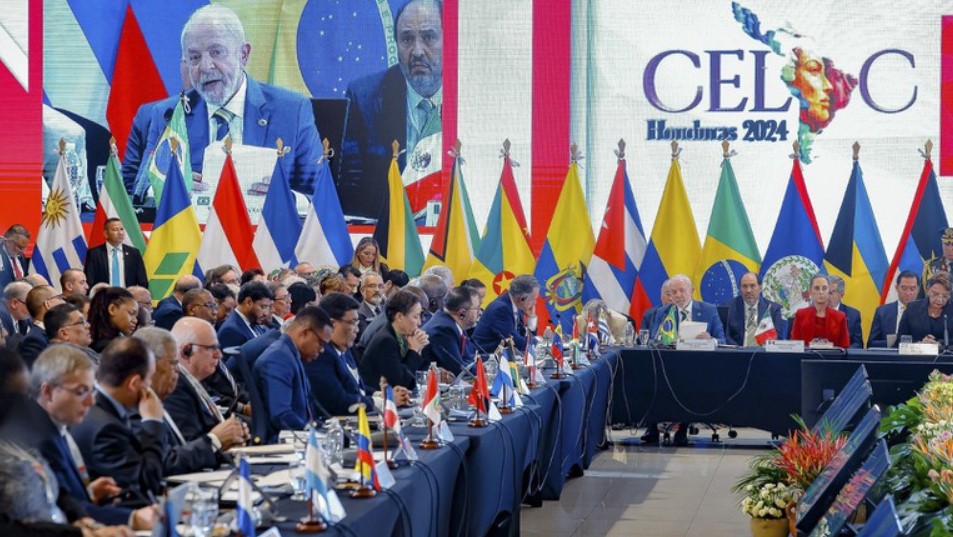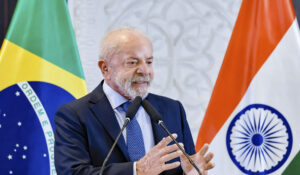
Published 10/04/2025 16:39
President Luiz Inacio Lula da Silva defended, on Wednesday (9), that it is imperative that Latin America and the Caribbean redefine its place in the new global order as a response to the ongoing transformations.
“Our international insertion should not be oriented only by defensive interests. We need a structured action program around three topics that demand collective action,” said Lula during the opening of the 9th Meeting of the State and Government Heads of the Latin American and Caribbean States (Celac) in Honduras.
He also defended the unified candidacy of the region for the position of Secretary General of the United Nations (UN). “Celac can contribute to rescue the credibility of the UN by electing the first secretary general of the organization,” he proposed.
The president suggested as topics for collective action the strengthening of democracy, climate change and economic and commercial integration.
Read more: Lula will take proposal for female integration and leadership to Celac
“No country can impose its political system on another. But it was in democratic periods that Brazil has advanced most in overcoming its social and economic challenges. We have seen in recent years the erosion of confidence in politics, which has made room for authoritarian projects,” he said.
In the second theme, Lula noted that the region is one of the most vulnerable on the planet. In this sense, he highlighted COP 30, which will be held in Belém do Pará, in November this year, in which the emissions and financing reduction goals will be required.
“COP30, in the heart of the Amazon, will not only be COP of Brazil, but from all over Latin America and the Caribbean. We need to demand from the rich countries of reducing emissions aligned with the Paris and financing agreement to the needs of the fair transition,” he said.
Regarding economic and commercial integration, the president stated that it is essential to protect countries against unilateral actions. As an example, Lula cited the five South American integration routes aimed at reinforcing Brazil’s trade with South America’s neighbors.
“In 2023, commerce between Latin American and Caribbean countries corresponded to only 14% of exports in the region. The annual trade volume that Brazil maintains with CELAC countries is $ 86 billion, higher than we have with the United States and close to what we have with the European Union,” he noted.
The president pointed out that it is necessary to promote the regional trade of goods and services, benefited, for example, with the union of transport networks and energy. In addition, it is essential to strengthen regional financial institutions.
“To expand our exchange, my government is determined to reactivate Aladi’s reciprocal payment and credits agreement and to expand local currency payments system. Integrating transportation, energy and telecommunications networks reduces distances, decreases costs and encourages synergies between production chains,” he said.
With information from Ascom/Planalto
Source: vermelho.org.br

